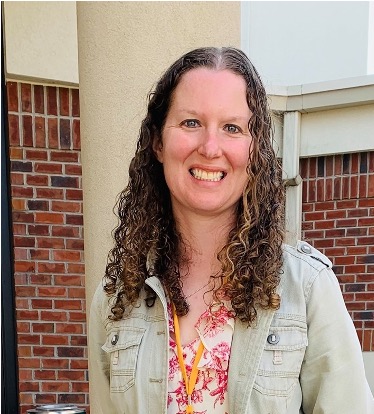“Tell me, what do you have in your house?”
Sometimes people look at me like I have three heads when I share with them what it means to start fresh expressions of church. For some, it’s because the whole idea is difficult to wrap their minds around, but others just don’t know where to start. “Where do you get pioneers?” “How do we decide what to do?” “How can we budget for starting something new?”
It can feel very overwhelming.
But before I jump in and try to provide answers for those questions, I usually go to scripture. But the scripture I go to isn’t my means of stalling or lightening the mood. It’s also not a theological explanation or proof-text.
It’s a question.
“Tell me, what do you have in your house?”
It comes from one of my favorite stories in the Bible and my favorite book of the Old Testament scriptures. I’ve always been a big fan of Elisha—from the going-away cookout he hosted at the beginning of his call to ministry, to his stubbornness to leave his mentor’s side when Elijah was about to be taken up by God. But in the story commonly called “The Widow’s Olive Oil” or “A Poor Widow,” Elisha meets a woman who is about to lose everything, even her kids, because of the dire financial situation she is in. And so, wanting to help her, he begins by asking this simple question. And what happens next is nothing the woman would have even imagined.
She said, “Your servant has nothing at all in the house except a small jar of oil.” 3 He said, “Go out and borrow containers from all your neighbors. Get as many empty containers as possible. 4 Then go in and close the door behind you and your sons. Pour oil into all those containers. Set each one aside when it’s full.” 5 She left Elisha and closed the door behind her and her sons. They brought her containers as she kept on pouring. 6 When she had filled the containers, she said to her son, “Bring me another container.” He said to her, “There aren’t any more.” Then the oil stopped flowing, 7 and she reported this to the man of God. He said, “Go! Sell the oil and pay your debts. You and your sons can live on what remains.”-2 Kings 4:2-7
Yes, the story is about trusting God’s abundance and provision. But it’s even deeper than that. It’s about turning over to God what you already have—and letting him fill it in a new way.
It’s about turning over to God what you already have—and letting him fill it in a new way.
Tweet this.
To put it differently: many churches already have ministries, groups, missions, and connections that could become starting points for starting fresh expressions of church. Some have taken place over the course of years. Some are part of the fabric of a community. Some just need to begin turning outward.
What is your church already doing that could be the first step in starting a fresh expression of church? Here are four examples:
-
Food Pantry or Clothing Closet
Many churches host their own pantries or are distribution sites for area food banks. Whether monthly, weekly, or daily, these ministries have the potential to impact and interact with hundreds to thousands of people, some on a more regular basis. Many of these folks already have a positive view of and comfort with the place where they come to have their physical needs met, though they may never come to Sunday morning worship. Graceland Baptist Church in Powhatan, Virginia, developed a Dinner Church out of their food pantry, growing relationships with people as they provide spiritual food for them as well.
Graceland Baptist Church in Powhatan, Virginia, developed a Dinner Church out of their food pantry, growing relationships with people as they provide spiritual food for them as well.
Tweet this.
-
Wednesday Night Dinner
Most of the time, Wednesday night dinners are meant to be times of food and fellowship for people who already attend a church. But what if you turned these weekly gatherings outward to the community, or held the dinner outside the church building? Are youth sports practicing in your area? Any AA meetings later in the evening? What if the dinner became a way to connect with people who don’t go to church but could use a good meal and time together?
Most of the time, Wednesday night dinners are meant to be times of food and fellowship for people who already attend a church. But what if you turned these weekly gatherings outward to the community?
Tweet this.
-
Sports or Interest-Based Small Group
It’s common for folks who are new to Fresh Expressions to ask how a fresh expression of church differs from a small group. Church small groups are usually part of the discipleship process of a church, whereby attendees and members gather for fellowship, Bible-reading, and accountability. A fresh expression of church is mainly for the benefit of folks who are not part of any church, and begins through a process of listening, loving and serving, and building community. However, an established small group, especially one with a passion for a specific interest or group or people, can become the team that launches fresh expressions of church—when they turn outward and reimagine themselves as existing for the benefit of non-Christians. For example, the Brotherhood, a fresh expression of church out of The Center for Faith and Leadership at Mary Washington University, is in the beginning stages of starting another fresh expression around Saturday night soccer as a party alternative. A small group with an evangelistic fervor can be fertile soil for beginning a fresh expression of church.
-
Parachurch Ministry
Parachurch ministers and ministries like YoungLife, Cru, and Youth for Christ often meet at and/or are funded in part by area churches and their members. While often reaching people on the fringes who otherwise might not connect to church or to Jesus, these ministries are usually focused on a specific age or demographic. When kids “age out,” many times there is no natural place for them to connect. “The Chosen” is a fresh expression of church in Norfolk, VA, that ministers to special needs individuals who were once part of YoungLife’s Capernaum program. When participants aged beyond their student years and beyond YoungLife’s mission, a team decided to start a new form of church that was not limited to a certain age range. A fresh expression of church might be waiting for you in the “next” of a parachurch ministry with whom you are already involved.
So, “what do you have in your house?”
Is there a ministry, mission, or connection out of which you could begin a fresh expression?
If you’re starting out on the fresh expressions journey feeling inadequate, overwhelmed, and full of more questions than answers, you might ask yourself the very question Elisha asked the widow.


